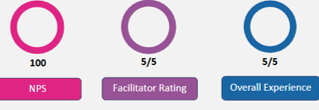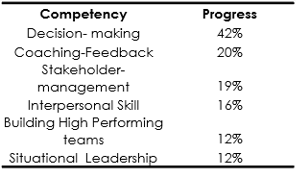Executive Coaching Techniques to Combat Imposter Syndrome

Imposter Syndrome- it’s a term that’s been circulating in the professional realm for decades, and its relevance remains profound. Defined as the persistent feeling of being inadequate despite evident success, imposter syndrome affects countless individuals across various industries. Whether you’re a seasoned executive or a fresh graduate embarking on your career journey, imposter syndrome can rear its head at any stage, hindering progress and sapping confidence. Fortunately, there are strategies to combat this pervasive phenomenon, and Executive Coaching Techniques offer a tailored approach to address the unique challenges faced by high-achieving professionals.
In this blog, we’ll delve into the intricacies of imposter syndrome and explore how executive coaching techniques can help individuals overcome its grip.
Understanding Imposter Syndrome

Imposter syndrome manifests in various ways, but common signs include self-doubt, fear of failure, and a persistent belief that one’s success is undeserved or a result of luck rather than merit. Despite external evidence of competence and accomplishment, individuals experiencing imposter syndrome often feel like frauds, expecting to be exposed at any moment.
This phenomenon can stem from a multitude of factors, including perfectionism, fear of criticism, or comparisons with others. High-achievers, in particular, may find themselves susceptible to imposter syndrome due to the pressure to continually excel and meet unrealistic standards.
The Role of Executive Coaching
Executive coaching offers a supportive and collaborative environment for professionals to explore their challenges, set goals, and develop strategies for personal and professional growth. When it comes to overcoming imposter syndrome, executive coaches employ a range of techniques tailored to the individual’s needs and circumstances.
Techniques for Overcoming Imposter Syndrome with Executive Coaching Techniques

1. Cognitive Restructuring
Cognitive restructuring involves identifying and challenging negative thought patterns associated with imposter syndrome. Through guided reflection and questioning, executive coaches help individuals recognize irrational beliefs and replace them with more realistic and empowering perspectives.
2. Building Self-Awareness
Self-awareness is a cornerstone of personal development and essential for combating imposter syndrome. Executive coaches facilitate introspective exercises and feedback sessions to help individuals gain clarity on their strengths, weaknesses, and areas for growth. By developing a deeper understanding of themselves, clients can cultivate confidence and resilience in the face of self-doubt.
3. Setting Realistic Goals
Setting realistic and achievable goals is crucial for breaking the cycle of imposter syndrome. Executive coaches work with clients to define clear objectives that align with their values and aspirations. By focusing on concrete, measurable outcomes, individuals can track their progress and celebrate their accomplishments, reinforcing a sense of competence and self-worth.
4. Cultivating a Growth Mindset
A growth mindset is characterized by the belief that abilities and intelligence can be developed through effort and perseverance. Executive coaches encourage clients to embrace challenges, learn from setbacks, and view failure as an opportunity for growth rather than evidence of incompetence. By reframing their mindset, individuals can overcome the fear of failure and embrace their potential for success.
5. Encouraging Self-Compassion
Self-compassion involves treating oneself with kindness and understanding, especially in moments of difficulty or failure. Executive coaches guide clients in cultivating self-compassionate practices, such as mindfulness, self-care, and positive self-talk. By practicing self-compassion, individuals can counteract the harsh self-criticism perpetuated by imposter syndrome and develop greater resilience in the face of adversity.

Imposter syndrome may be a common affliction, but it doesn’t have to dictate one’s professional journey. Through the support of executive coaching and the application of tailored techniques, individuals can overcome self-doubt, cultivate confidence, and realize their full potential. By embracing cognitive restructuring, building self-awareness, setting realistic goals, cultivating a growth mindset, and practicing self-compassion, high-achieving professionals can break free from the grip of imposter syndrome and thrive in their careers.












